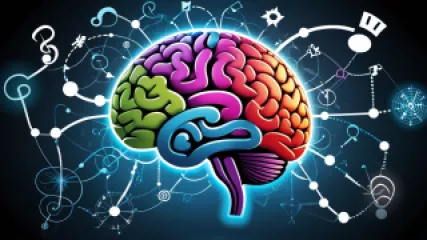Exploring Different Intelligence Theories: Top 5 and Bottom 5
Exploring Different Intelligence Theories: Top 5 and Bottom 5
Intelligence is a complex concept that has fascinated scholars, researchers, and psychologists for centuries. Over time, various cognitive theories of intelligence have emerged, each offering unique perspectives on how intelligence can be understood and measured. In this article, we will explore the top 5 and bottom 5 intelligence theories, shedding light on their key principles, strengths, weaknesses, and impact on our understanding of human cognition.
Top 5 Intelligence Theories
-
The Theory of Multiple Intelligences (MI)
The Theory of Multiple Intelligences, proposed by Howard Gardner in 1983, challenges the traditional view of intelligence as a single, general ability. Gardner suggests that there are multiple forms of intelligence, including linguistic, logical-mathematical, spatial, musical, bodily-kinesthetic, interpersonal, intrapersonal, and naturalistic intelligence. This theory emphasizes individual differences in how people excel in different domains, recognizing diverse talents and abilities beyond traditional IQ tests.
-
The Triarchic Theory of Intelligence
Developed by Robert J. Sternberg in the 1980s, the Triarchic Theory of Intelligence proposes three facets of intelligence: analytical, creative, and practical. Analytical intelligence relates to problem-solving and critical thinking skills, creative intelligence involves generating innovative ideas, and practical intelligence refers to the ability to apply knowledge and adapt to real-life situations. This theory expands the definition of intelligence to encompass a broader range of cognitive abilities.
-
The Emotional Intelligence (EI) Theory
First introduced by Peter Salovey and John D. Mayer in 1990, the Emotional Intelligence Theory focuses on the capacity to recognize, understand, and manage emotions effectively. EI comprises four components: perceiving emotions, using emotions to facilitate thinking, understanding emotions, and managing emotions. This theory highlights the importance of emotional awareness and regulation in social interactions, decision-making, and overall well-being.
-
The Theory of Practical Intelligence
Developed by Robert J. Sternberg, the Theory of Practical Intelligence emphasizes the application of knowledge and skills to solve real-life problems. Practical intelligence incorporates the ability to adapt to different contexts, navigate social situations, and demonstrate common sense. This theory recognizes that intelligence extends beyond academic or theoretical domains, highlighting the importance of practical wisdom in daily life.
-
The Cognitive Abilities Theory
The Cognitive Abilities Theory, proposed by John Carroll in 1993, suggests that intelligence consists of three levels: stratum III, II, and I. Stratum III encompasses general cognitive abilities, such as fluid reasoning, quantitative reasoning, and visual-spatial processing. Stratum II represents broad cognitive abilities, including crystallized intelligence, memory, and learning. Finally, stratum I refers to specific cognitive abilities, such as word fluency or numerical calculation. This theory provides a hierarchical framework to understand the structure of human intelligence.
Bottom 5 Intelligence Theories
-
The Theory of Phrenology
The Theory of Phrenology, popularized in the 19th century by Franz Joseph Gall, proposed that personality traits and intellectual abilities could be determined by the shape and size of bumps on the skull. However, this theory lacks scientific evidence and has been widely discredited due to its lack of empirical support.
-
The Theory of Racial Intelligence
The Theory of Racial Intelligence, a now-debunked concept, suggested that intelligence levels varied between different racial groups. This theory perpetuated harmful stereotypes and discrimination, leading to social injustices. It is important to note that there is no scientific basis for the belief that intelligence is determined by race.
-
The Theory of Emotional Quotient (EQ)
The Theory of Emotional Quotient, often associated with Daniel Goleman's popular book "Emotional Intelligence," emphasizes the role of emotional abilities in intelligence. While emotional competence is undoubtedly crucial for interpersonal relationships and personal well-being, the idea of a separate measure of EQ has faced criticism for its lack of clear definition and standardized assessment.
-
The Theory of Practical Intelligence as the Sole Measure of Intelligence
Some scholars argue that practical intelligence, which focuses on everyday problem-solving and adaptability, should be the sole measure of intelligence. While practical intelligence is undoubtedly valuable, narrowing the definition of intelligence solely to this aspect neglects other important cognitive abilities and may oversimplify the complexity of human intelligence.
-
The Theory of Hierarchical Cognitive Abilities
The Theory of Hierarchical Cognitive Abilities, proposed by Arthur Jensen, suggests that intelligence is primarily determined by genetic factors and that certain racial or ethnic groups have inherently higher intelligence than others. This theory has been widely criticized for its flawed methodology and ethical concerns. It is important to approach intelligence research with caution and avoid perpetuating biases or prejudices.
Intelligence theories have significantly contributed to our understanding of human cognition, shaping educational practices, psychological assessments, and even mental health coaching. While the top 5 intelligence theories offer valuable insights into the multifaceted nature of intelligence, it is crucial to critically evaluate theories that perpetuate harmful stereotypes or lack empirical support. By exploring and analyzing different intelligence theories, we can continue to refine our understanding of this complex and fundamental aspect of human nature.






